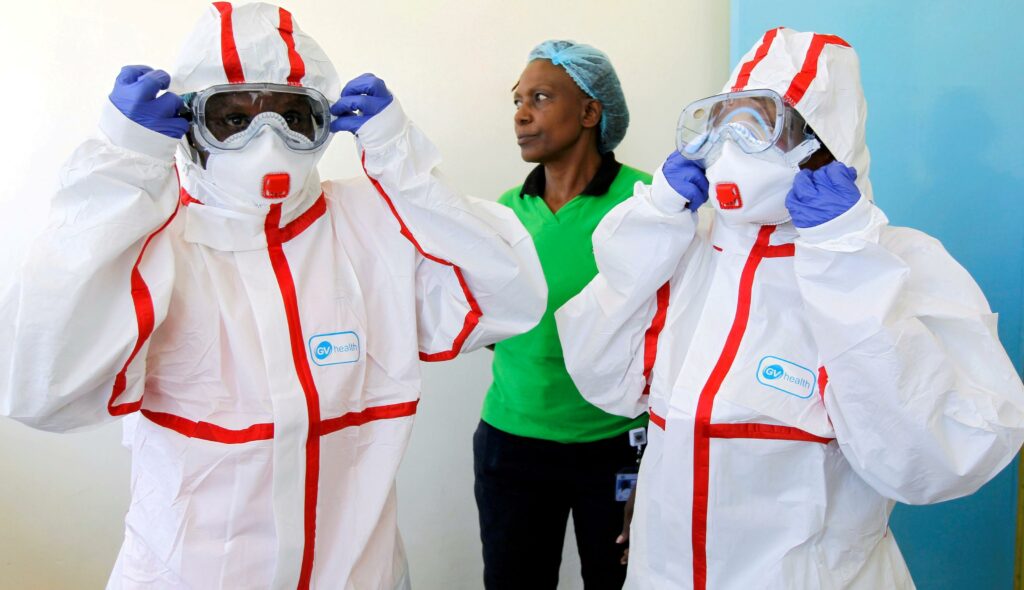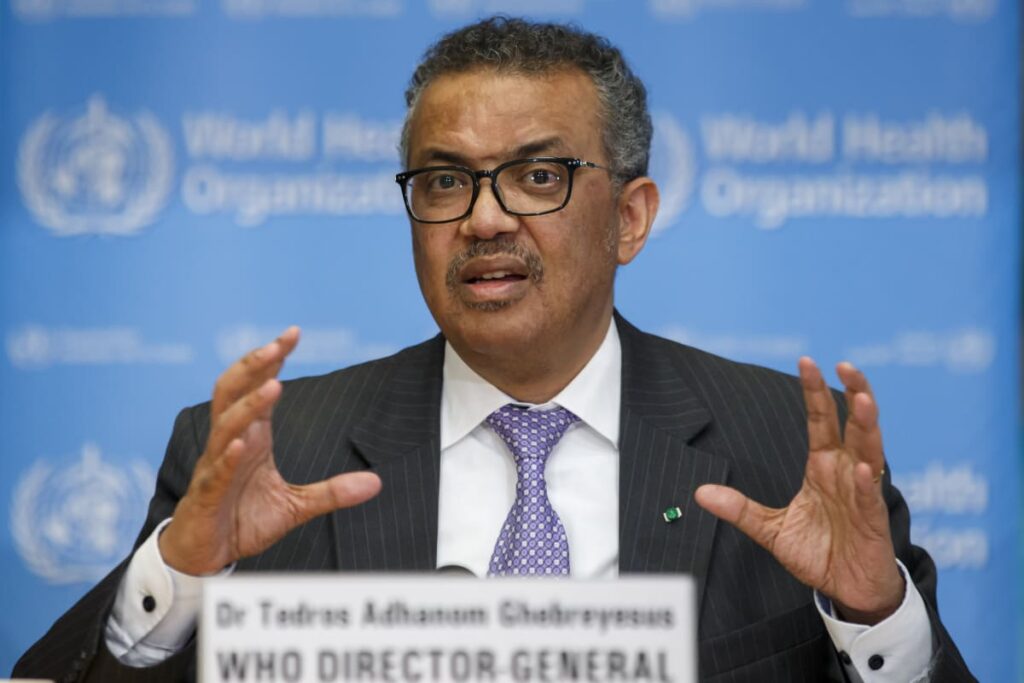As the world grapples with this unprecedented virus, how will developing nations and those living in poverty be affected?
We are living in unparalleled times where Covid-19 has turned our world upside down.
And while we recognise that there are those in our own nation whose health and livelihood have been extremely impacted by the virus, we also believe we can’t forget the world’s most vulnerable at this time.
With Europe declared as the current epicenter of the virus, there has been little focus in the media regarding developing nations and the spread of the disease.
But within the last week the virus has started to wreak havoc on poorer nations.
Kenya, Ethiopia, Sudan, and Guinea all confirmed their first cases of the new coronavirus on Friday 13 March, giving the disease a foothold in 19 countries on the African continent.
Other countries now affected include: Indonesia: 117 cases, Sri Lanka: 11 cases, Pakistan: 28 cases, Philippines: 140 cases.
And experts are warning that in these developing nations, the virus will ‘wreak havoc’, with one scientist calling Africa a ‘ticking time bomb.’

What will be the impact for those in poverty?
Global ‘Health shocks’ like these present a compounded risk for those living in poverty.
There are no safety nets for those in extreme poverty.
Any health epidemic has a compounded effect on those who live in poverty because the basic safety nets and support systems we have in developed nations are just not available (or are stretched to breaking point) to them during a crisis.
They can’t stockpile food and medicine, they don’t have the income to.
Those in poverty often don’t have access to adequate healthcare or doctors, and they may already be struggling with other illness – malnutrition, pneumonia which means another contagious illness could have a devastating impact on communities.
“Ill-health and limited resilience capacities can create multiplier effects,” says Vidya Diwakar, Senior Research Officer at the Overseas Development Institute.
“Hunger, malnutrition, pneumonia and other forms of health-related shocks and stresses compound vulnerability to the virus and contribute to a vicious cycle of disease, destitution and death.”
Two of the major concerns: Living Conditions and Access to Healthcare
Inadequate living conditions such as urban slums are hot spots for disease.
A virus like Covid-19 can spread at a disproportionate rate in an overcrowded slum.
On 12 March, Africa registered its first coronavirus death. The number of cases in the continent has continued to grow and concerns are expounding for populations in Africa – where health systems are weaker.
“Our biggest fear involves cases arising in poor, densely populated neighbourhoods,” Dr Michel Yao, Emergency Operations Programme Manager at the WHO’s Regional Office in Africa, told The Africa Report.
“In this type of situation, if health facilities don’t have the appropriate capacity to treat patients, then the death toll could be significant.”
A recent study of the Ebola Crisis found urban slums were hotspots —that turned into hubs of disease.
Ebola sufferers living in shanty towns infected 3.5 times as many people as those living in wealthy areas.
The virus could be ‘unstoppable’ in refugee camps.
Now think about the 70.8 million displaced people around the world who have been forced from home.
Many of them are living in refugee camps, which experts are warning could become another hotspot for outbreaks.
As COVID-19 threatens Moria, a refugee camp of 26,000 people on the Greek island of Lesbos, and other camps like it in Europe and the Middle East, aid agencies are scrambling to prepare for what they fear will be a devastating outbreak.
Concerns have grown so severe that Doctors Without Borders called last week for Moria and others on the Greek islands to be evacuated immediately.
“In some parts of Moria camp there is just one water tap for every 1300 people, and no soap available,” said Hilde Vochten, the organization’s medical coordinator in Greece.
For these people ‘self-isolation’ is not even an option. Running water and soap a far-off dream.
The other major factor is a lack of access to adequate medical care.
While wealthy countries typically have 2-12 hospital beds per 1,000 population, in the poorest countries it is as few as 1 bed per 10,000.
As World Vision International’s head of Health and Nutrition, Tom Davis pointed to this week, a lack of medical resources such as oxygen, ventilators and intensive care units will also present a major hurdle.
“COVID-19 is highly infectious and will spread easily in places where there are unhygienic conditions, crowding, and where health services and monitoring are weak. This means that countries hosting high numbers of displaced people and refugees or where there is a severe lack of doctors, nurses, community health workers and hospitals need special and urgent support.”
What we often don’t consider is that people in these countries are grappling with other health issues which may get less attention and resource considering the Coronavirus pandemic.
“What makes this [supporting developing nations] even more crucial is that the coronavirus could decrease our resources for treating other diseases such as malaria and for ensuring maternity and child healthcare.” – Dr Michael Yao.
Global Response:
Since the global outbreak of the virus there has been an increase in funding from both The World Bank and the United Nations to assist developing nations in their response.
On 3 March, The World Bank announced it was ‘making available an initial package of up to $12 billion in immediate support to assist countries coping with the health and economic impacts of the global outbreak.’
$8 billion of this is new funding and is designed to help developing countries strengthen health systems, including better access to health services to safeguard people from the epidemic, strengthen disease surveillance, bolster public health interventions, and work with the private sector to reduce the impact on economies.
And on 13 March, WHO announced a new fund that would ‘help the United Nations agency support at-risk and vulnerable countries, especially those with weak health systems, to prepare and respond to the COVID-19 pandemic.’
This new fund is called the COVID-19 Solidarity Response Fund, and individuals are also able to donate.
It will be hosted by the U.N. Foundation and the Swiss Philanthropy Foundation and means philanthropists, companies, and individual donors — can contribute to the fund, with Facebook and Google already jumping on board.

Worldwide there has been other announcements of aid funding by governments to help with the global effort. (Thanks to Global Citizen for summarising the information below):
- The UK has provided £46 million of UK aid to help find a vaccine to fight the disease, including a large contribution to the WHO.
- Canada announced a commitment of $1.1 billion in response to the outbreak, which included $275 million earmarked for research and vaccine development, and $50 million specifically set aside to help with response efforts globally.
- The US announced that it would spend up to $100 million to tackle the outbreak overseas.
“We can’t ignore the fact that this is a truly global problem – one that requires truly global solutions,” – Elizabeth Cousens, UN Foundation President and CEO.
“The case for global cooperation could not be clearer – communities everywhere are affected, and people want to contribute. This new fund will create space for people everywhere, together, to fight this virus.”
Main image: Kenyan health workers dressed in protective suits walk after disinfecting the residence where Kenya’s first confirmed coronavirus patient was staying, in the town of Rongai near Nairobi, Kenya March 14, 2020. REUTERS/Baz Ratner